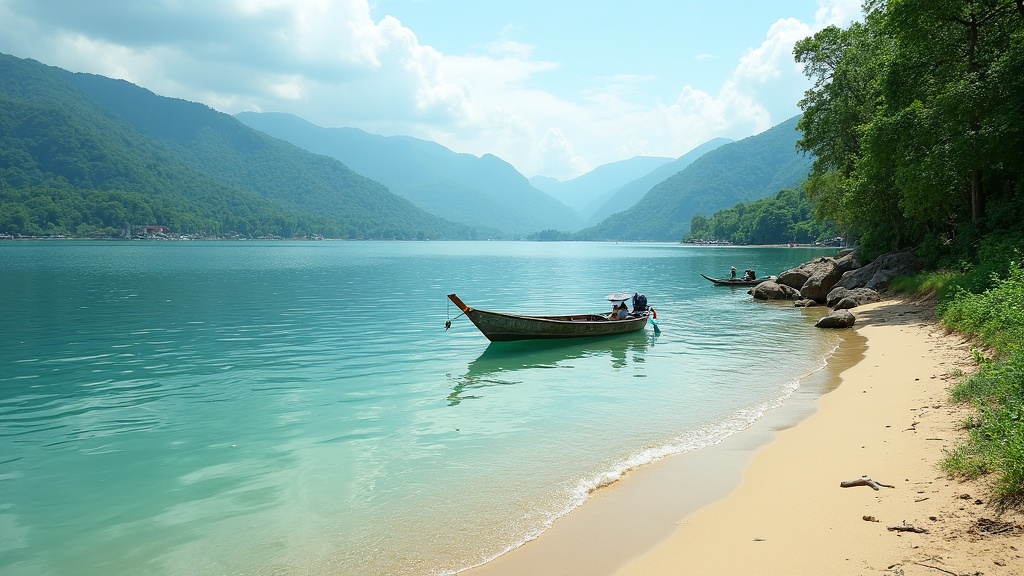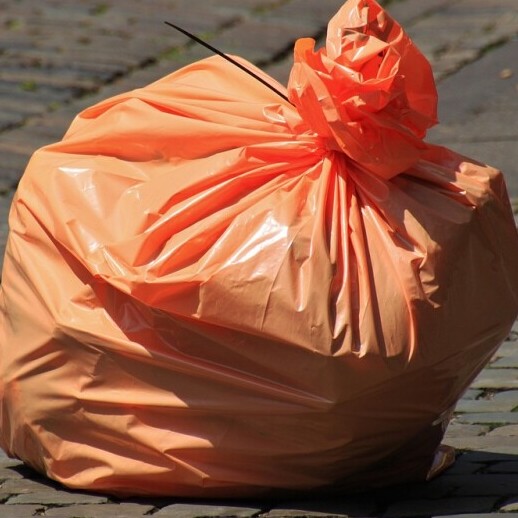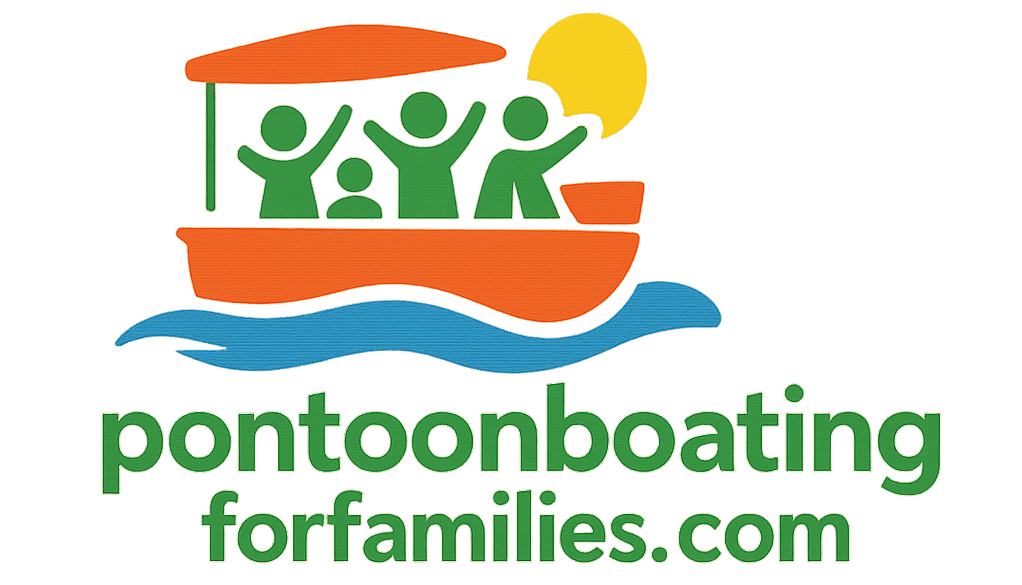Ecofriendly boating has really caught on with families eager to make the most of time on the water while doing their part for nature.
Whether you’re packing up the kids for a relaxing weekend at the lake or enjoying regular boating excursions, some surprisingly easy changes can shrink your environmental footprint.
Here, I’m offering practical tips and ideas that make ecofriendly boating a no-brainer, so you can enjoy your adventure and help out the local ecosystem along the way.

Why Eco-friendly Boating Matters for Families
Boating as a family is about soaking up quality time together, exploring the outdoors, and making memories that last. It’s also a golden opportunity to show kids what environmental responsibility looks like in real life. By taking steps to keep the water and natural spaces healthy, you’re passing along values that stick. Plus, the small stuff adds up fast—so sharing conscious habits as a family goes a long way toward keeping lakes, waterways, and the ocean safe and beautiful for all.
The U.S. Environmental Protection Agency figures that millions of recreational boats set out every year. Each one can leave its mark, from gas spills to plastic cups floating in the current. Every family that commits to ecofriendly boating is helping prevent pollution, keeping habitats healthy for fish, birds, and critters who call the water home.
Getting Ready: Prepping for an Eco-Friendly Boat Trip
Starting with a smart checklist before hitting the water pays off. A little prep time smooths the way for adventure and helps keep everyone mindful of greener habits:
- Inspect your boat and engine regularly: Well-maintained engines are less likely to leak fuel or oil.
- Prep eco-friendly supplies: Reusable water bottles, plates, and utensils eliminate the need for single-use plastics and can help make your trip greener.
- Check weather and water conditions: Planning around conditions helps you steer clear of fragile habitats, especially in shallow areas or spots where birds nest.
- Bring a waste bag: Set aside a bag for all your garbage (plus any litter you pick up along the shore) for an easy and respectful clean-up process.

Sustainable Boating Practices On the Water
Once you’re out on the boat, it’s time for the fun part—but also where ecofriendly habits matter most. Here are some of my tried-and-true tips that step up your family boating game while caring for the environment.
- Go slow near shore: Easing up near the bank helps you avoid damaging underwater habitats and keeps wakes from washing away the shoreline.
- Be careful with fuel: Don’t overfill tanks, and always wipe up any drips quickly. Pick spots that keep fuel away from the water’s edge when you top off.
- Use nontoxic cleaning products: Look for eco-conscious soaps and cleaners-regular cleaning agents can harm aquatic critters.
- Minimize engine use: Electric trolling motors or paddles cut out noise and pollution. If you’re stopped or drifting, switch off the engine to save fuel.
- Respect fishing rules: Keep to approved areas and follow catch limits. Avoid using live bait that doesn’t naturally belong in that waterway.
Wildlife and Habitat Protection
Part of the fun of boating is spotting fish, birds, and even turtles along the way. Sharing the water with wildlife is a privilege-here are simple ways you can pitch in to protect local habitats and get your family involved:
- Steer clear of nesting spots: Give extra space to parts of the shore with nests, overhanging branches, or signs of young animals, especially during spring and summer months.
- Watch out for aquatic plants: Avoid disturbing reedy or grassy shallows, which shelter young fish and birds (these spots are key to the ecosystem).
- Respect no-wake zones: No-wake zones are there for a reason. Slowing down helps prevent stirring up sediment or harming wildlife.
- Don’t feed the animals: It can be tempting, but wild animals stay healthiest when they find their own food.
Eco-friendly Gear and Upgrades
When you’re ready to give your boating routine a boost, a few gear upgrades can really lower your family’s impact. Here are some innovations worth checking out:

- Try electric or solar powered motors: New electric engines run quietly and cleanly, slashing your fuel needs and emissions.
- Install fuel/water separators: These safeguard against gasoline or oil leaks-particularly on older boats where seals can be iffy.
- Switch to fuel efficient engines: Modern four-stroke or electric motors sip less fuel and create much less pollution than old two-stroke designs.
- LED navigation lights: LEDs use less energy and need replacing less often.
- Ecofriendly gear choices: Look for life jackets and boating accessories made from recycled materials or plant-based fabrics to help reduce waste.
Reducing Waste and Recycling on the Water
Packing food and drinks for the family can generate a surprising amount of trash unless you plan ahead. Here’s how I cut down on waste while still keeping everyone happy and fueled up:
- Choose reusable options: Bring along coolers, reusable containers, and bottles instead of single-serve plastics.
- Separate trash and recycling: Pack two bags, one for recyclable cans and bottles, another for trash. Make sure each gets where it needs to go when you’re back on land.
- Help tidy the beaches: Make a family challenge to pick up any litter you spot at the launch ramp or along the shoreline.
Dealing With Wastewater and Sewage
Some boats have onboard restrooms or portable toilets. How you handle that waste is super important for the health of the water. Legally and safely, never dump sewage or dirty water in the lake or even in bigger rivers. Marinas usually provide pump-out stations-always use these to deal with waste properly. This step helps shield both people and wildlife from runoff and contamination.
Common Challenges and Simple Solutions

Eco-friendly boating does take a little extra thought, but families can easily manage the most common road blocks. Here’s how I keep things simple when challenges pop up:
- Extra messes or broken gear: Sometimes you wind up with more trash than planned. Stashing a bonus bag in your kit means you’ll always be set to pack everything out, even broken gear or found debris.
- Kids lose interest in green habits: Make it interactive. Wildlife-spotting bingo, reward points for trash pickup, or fun nature challenges keep kids involved and learning as you go.
- Eco-friendly gear is pricey: Not in the market for a new motor? Focus on the quick wins, like reusable gear and gentle cleaners, until you’re ready for bigger upgrades.
- Weather surprises: Going green should never come at the cost of safety. If the skies turn or winds pick up, it’s smart to return to the dock early rather than waiting it out and risking shore or habitat damage.
Quick-Start Checklist for Family Boaters
- Inspect and maintain your boat on a regular basis. Watch for leaks and take care of worn parts.
- Pack reusable gear such as bottles and utensils.
- Fuel up wisely. Avoid overfilling, check for spills, and refuel away from the water when possible.
- Stick to designated routes and honor all no-wake zones to help wildlife and shorelines.
- Dispose of trash and recycling properly-never dump anything in the water.
- Involve your family in the process. Let kids help spot animals, pick up litter, and learn why your boating choices make an impact.
FAQs: Ecofriendly Boating for Families
Question: Is it possible to enjoy boating and still protect the environment?
Answer: Absolutely! Most ecofriendly boating habits are about small choices in how you prepare, the gear you use, and paying attention to your surroundings. Families have a unique chance to pass along these attitudes to kids.
Question: Are electric or solar-powered boats worth the investment?
Answer: They do reduce both pollution and noise levels, especially in tight waterways. Even if a whole new boat isn’t practical right now, incremental upgrades or fuel-saving habits are a great place to start.
Question: What if someone else is polluting or ignoring the rules?
Answer: If you feel comfortable, gently offer advice or share helpful info. If not, take note of their boat or registration and pass it along to marina staff or local wildlife authorities.
Question: How do you keep children excited about ecofriendly boating?
Answer: Make it a family affair! Nature games, scavenger hunts, or even collecting data for citizen science projects can turn every boat ride into an adventure and make environmental care second nature to kids.
My Takeaway: Small Changes, Big Impact on the Water
Ecofriendly boating isn’t about giving up your favorite family traditions. Instead, it means making simple choices to keep waterways clean, healthy, and ready for your crew (and future generations). Every swap-no matter how small, helps protect the water, wildlife, and scenery you love.
With just a bit of planning, some smart gear, and an ecofriendly mindset, you’ll find it easier than ever to enjoy relaxing days on the boat and protect the places your family loves. Try a few of these ideas on your next trip and see how satisfying eco-friendly boating can be.
**Here’s a little transparency: Our website contains affiliate links. This means if you click and make a purchase, we may receive a small commission. Don’t worry, there’s no extra cost to you. It’s a simple way you can support our mission to bring you quality pontoon boating content.
